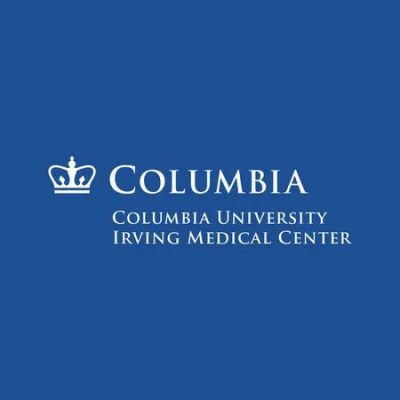Eating for a Healthy Heart: Best Foods to Prevent Heart Disease
As someone who’s always tried to eat a balanced diet, I’ve recently taken a deeper interest in foods that specifically help with heart disease prevention. Having seen relatives struggle with heart disease, I realized that what we eat plays a pivotal role in our cardiovascular health. Over time, I’ve learned that by choosing the right foods, I can reduce my risk of heart disease and boost my overall well-being. This realization led me to research which foods are most effective in supporting a healthy heart.
Heart disease remains one of the leading causes of death worldwide, and while genetics and lifestyle choices certainly play a role, diet is one of the most controllable factors in heart health. Eating the right foods can lower blood pressure, reduce cholesterol levels, and decrease inflammation — all of which are essential for heart disease prevention. Let me take you through the top foods that can help protect your heart and promote long-term cardiovascular health. From leafy greens to healthy fats, these foods are not only delicious but also packed with nutrients that help keep your heart in top shape.

1. Leafy Greens: The Power of Greens for Your Heart
Leafy greens, like spinach, kale, and Swiss chard, have become my go-to foods when I want to nourish my heart. These greens are packed with vitamins, minerals, and fiber, and they contain high levels of antioxidants that protect the cardiovascular system. One of the most notable benefits of leafy greens is their ability to help regulate blood pressure. The high potassium content in these vegetables helps balance sodium levels in the body, which can prevent hypertension — a major risk factor for heart disease.
Beyond potassium, leafy greens are rich in vitamin K, which plays a critical role in maintaining proper blood circulation and preventing calcification of the arteries. These greens also provide folate, a type of B vitamin that supports healthy blood vessels and helps prevent the buildup of homocysteine, an amino acid linked to an increased risk of heart disease when present in high levels.
As part of my daily routine, I try to incorporate leafy greens into my meals. Whether it's adding spinach to my morning smoothie, making a kale salad for lunch, or sautéing Swiss chard for dinner, these vegetables are versatile and easy to incorporate into various dishes. With their incredible health benefits, they are a key part of my heart-healthy diet.
Atlanta Heart Specialists
atlanta heart specialists
4375 Johns Creek Pkwy #350, Suwanee, GA 30024, USA

2. Fatty Fish: Omega-3 Fatty Acids for Heart Protection
When it comes to heart health, fatty fish like salmon, mackerel, sardines, and trout are some of the most heart-healthy foods you can consume. These fish are rich in omega-3 fatty acids, which are essential for reducing inflammation in the body. Inflammation is a key contributor to the development of heart disease, so reducing it can significantly lower your risk of cardiovascular problems.
Omega-3 fatty acids also help lower triglycerides, reduce blood clotting, and improve overall heart function. I personally enjoy having fatty fish a couple of times a week, either grilled, baked, or added to salads and pasta dishes. The American Heart Association recommends eating at least two servings of fatty fish per week for optimal heart health, and I’ve found that it’s a simple and delicious way to incorporate these beneficial fats into my diet.
Moreover, omega-3s also help maintain healthy cholesterol levels by increasing HDL (good cholesterol) and decreasing LDL (bad cholesterol). This is important because high levels of LDL cholesterol can lead to plaque buildup in the arteries, a leading cause of heart disease. By eating more fatty fish, I’ve been able to support my heart health while enjoying some of the tastiest meals.
3. Nuts and Seeds: Small Snacks with Big Heart Benefits
Incorporating nuts and seeds into my daily snacks has been a game-changer for my heart health. Almonds, walnuts, flaxseeds, and chia seeds are rich in healthy fats, fiber, and antioxidants that support heart function. These foods are especially beneficial because they contain monounsaturated fats and polyunsaturated fats, which are known to lower bad cholesterol levels and reduce the risk of heart disease.
Walnuts, for example, are an excellent source of omega-3 fatty acids, similar to fatty fish. Studies have shown that eating a handful of walnuts daily can improve blood vessel function and lower blood pressure. I’ve also found that flaxseeds and chia seeds are great sources of fiber and omega-3s, which contribute to heart health by lowering cholesterol and supporting healthy blood sugar levels.
What I love most about nuts and seeds is how easy they are to add to my meals. I sprinkle chia seeds or flaxseeds on top of yogurt or salads, and I enjoy a handful of almonds or walnuts as a midday snack. These small but mighty foods pack a big punch when it comes to promoting heart health.
4. Berries: Antioxidant-Rich Fruits for Heart Disease Prevention
Berries, including strawberries, blueberries, raspberries, and blackberries, are a delicious and nutritious addition to a heart-healthy diet. These fruits are rich in antioxidants, specifically flavonoids, which help reduce oxidative stress and inflammation. Oxidative stress occurs when free radicals damage cells, contributing to the development of heart disease. By consuming antioxidant-rich foods like berries, you can help protect your heart and improve overall cardiovascular health.
Studies have shown that regularly eating berries can lower blood pressure, reduce LDL cholesterol levels, and improve blood vessel function. I often add fresh berries to my oatmeal, smoothie bowls, or simply enjoy them as a snack. Not only do they taste amazing, but they also provide a wealth of vitamins and minerals, including vitamin C, which is essential for maintaining healthy blood vessels and preventing plaque buildup in the arteries.
Additionally, the fiber content in berries helps lower cholesterol levels and improve digestion, which is another benefit for overall heart health. Including a variety of berries in my diet has been an easy and tasty way to support my heart health while satisfying my sweet tooth.
5. Avocados: Creamy and Nutritious for Heart Health
Avocados are another fantastic addition to my heart-healthy diet. These creamy fruits are packed with monounsaturated fats, which help reduce bad cholesterol and increase good cholesterol. In fact, studies have shown that replacing saturated fats with monounsaturated fats, like those found in avocados, can lower the risk of heart disease.
In addition to healthy fats, avocados are a great source of potassium, which plays a key role in maintaining healthy blood pressure levels. Potassium helps balance the effects of sodium in the body, preventing hypertension — a major risk factor for heart disease. I love adding avocados to salads, sandwiches, and smoothies, or simply enjoying them as guacamole with whole-grain crackers.
Aside from their heart-healthy fats and potassium, avocados are also rich in fiber, which contributes to better digestion and helps maintain healthy cholesterol levels. They’re a versatile and nutrient-dense food that I’ve found to be both satisfying and beneficial for my heart health.
6. Whole Grains: Fiber-Rich Foods for Lower Cholesterol
Whole grains like oats, quinoa, barley, and brown rice are essential components of my diet for heart disease prevention. These grains are rich in soluble fiber, which helps lower LDL cholesterol by binding to cholesterol in the digestive system and removing it from the body. Studies have consistently shown that increasing fiber intake can reduce the risk of heart disease by improving cholesterol levels, lowering blood pressure, and reducing inflammation.
Oats, in particular, have been shown to be one of the most effective grains for lowering cholesterol. I love starting my day with a bowl of oatmeal, topped with fresh fruit and nuts for an extra heart-healthy boost. Whole grains are also excellent sources of magnesium, a mineral that helps regulate blood pressure and maintain normal heart rhythms.
Incorporating whole grains into your diet is easy. I substitute white rice with brown rice, add quinoa to salads, and choose whole-grain bread over refined options. These small changes have made a significant impact on my overall health and have helped me maintain a heart-healthy diet.
By choosing these nutrient-packed foods, I've been able to support my heart health and reduce the risk of heart disease. A diet rich in leafy greens, fatty fish, nuts, berries, avocados, and whole grains has not only improved my cardiovascular health but also made me feel more energized and vibrant. I encourage you to incorporate these foods into your daily meals and make heart disease prevention a priority. A little change in your diet today can make a big difference for your heart tomorrow.





















Deborah Heart and Lung Center
deborah heart and lung center
200 Trenton Rd, Browns Mills, NJ 08015, USA